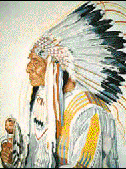
Of Holiday Fun and Facts

FOUNDER OF LABOR DAY
More than 100 years after the first Labor Day observance, there is
still some doubt as to who first proposed the holiday for workers.
Some records show that Peter J. McGuire, general secretary of the
Brotherhood of Carpenters and Joiners and a co-founder of the
American Federation of Labor, was first in suggesting a day to honor
those "who from rude nature have delved and carved all the grandeur
we behold." But Peter McGuire's place in Labor Day history has not
gone unchallenged. Many believe that Matthew Maguire, a machinist,
not Peter McGuire, founded the holiday. Recent research seems to
support the contention that Matthew Maguire, later the secretary of
Local 344 of the International Association of Machinists in Paterson,
N.J., proposed the holiday in 1882 while serving as secretary of the
Central Labor Union in New York. What is clear is that the Central
Labor Union adopted a Labor Day proposal and appointed a committee to
plan a demonstration and picnic.
THE FIRST LABOR DAY
The first Labor Day holiday was celebrated on Tuesday, September 5,
1882, in New York City, in accordance with the plans of the Central
Labor Union. The Central Labor Union held its second Labor Day
holiday just a year later, on September 5, l883. In l884 the first
Monday in September was selected as the holiday, as originally
proposed, and the Central Labor Union urged similar organizations in
other cities to follow the example of New York and celebrate a
"workingmen's holiday" on that date. The idea spread with the growth
of labor organizations, and in l885 Labor Day was celebrated in many
industrial centers of the country.
LABOR DAY LEGISLATION
Through the years the nation gave increasing emphasis to Labor Day.
The first governmental recognition came through municipal ordinances
passed during 1885 and 1886. From them developed the movement to
secure state legislation. The first state bill was introduced into
the New York legislature, but the first to become law was passed by
Oregon on February 2l, l887. During the year four more states --
Colorado, Massachusetts, New Jersey, and New York -- created the
Labor Day holiday by legislative enactment. By the end of the decade
Connecticut, Nebraska, and Pennsylvania had followed suit. By 1894,
23 other states had adopted the holiday in honor of workers, and on
June 28 of that year, Congress passed an act making the first Monday
in September of each year a legal holiday in the District of Columbia
and the territories.
September 11th
Remember the tragic terror on this day
and all the hero's that came from that day

Mexican Independence Day is the culmination of the
Fiesta Patrias, a festival celebrating Mexico's independence from
Spain. The festival reaches a dramatic peak on September 15 at 11:00
p.m. when the President appears on the balcony of the National Palace
to recite the Grito de Dolores. This "cry of Dolores" recreates the
speech given by Don Miguel Hidalgo y Costillo on September 15,1810.
Hidalgo called for Mexican self-rule and a revolt against Spain. He
was captured and executed by Spanish troops in 1811 and Mexico did
not win independence from Spain until 1821.


German harvest celebration, observed with the consumption of copious quantities of Germanic (German and Austrian) food and beer, and with music, dance and other folk customs. Formerly commemorated marriage of King Ludwig I on October 17th of 1810.
September 22nd
Autumnal Equinox
Day in fall when the night and day are of equal length.
Official start of the fall season

